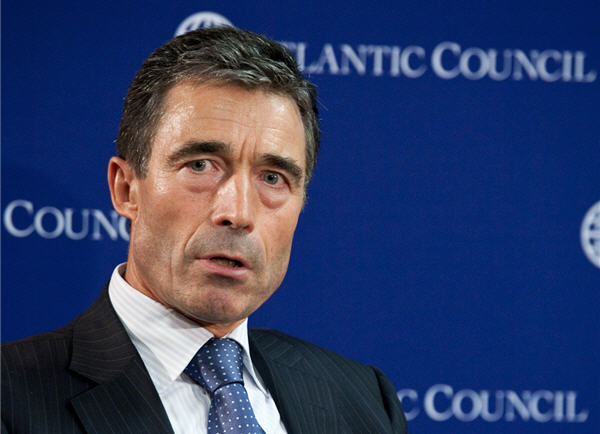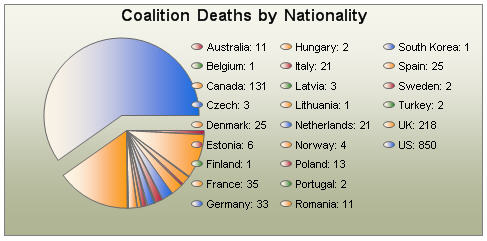 NATO Secretary General Anders Fogh Rasmussen told the Atlantic Council that, while NATO’s Afghanistan mission shows some “very real problems” within the Alliance, the fundamental lesson that should be taken away is the remarkable “solidarity” of 28 diverse nations fighting together for a common purpose.
NATO Secretary General Anders Fogh Rasmussen told the Atlantic Council that, while NATO’s Afghanistan mission shows some “very real problems” within the Alliance, the fundamental lesson that should be taken away is the remarkable “solidarity” of 28 diverse nations fighting together for a common purpose.
Rasmussen is painfully aware of the “frustrations” being expressed by many in America: “the restrictions some NATO nations put on their forces; by the time it takes NATO to take decisions; by the reluctance of some countries to send more forces to the mission, even for training.” He continued, “Let me be very clear. I understand those frustrations. I am already working hard to address those very real problems.”
Still, he believes, “America is losing sight of what NATO is” and how much it does. He points out that “all 28 NATO member countries are taking part” in the mission and “proving their staying power every day.” He notes that there are “35,000 non-U.S. NATO forces in Afghanistan — 40 percent of the total.” He believes this fact is not getting enough visibility in the American press or the debate taking place on this side of the Pond.
He continued, “While body count is no measure of solidarity, it is, unfortunately, a symbol of commitment. Over 20 countries have had their soldiers killed, some in large numbers.” Therefore, “I will not accept from anyone the argument that Europeans and Canadians are not paying the price for success in Afghanistan. They are.”
Even aside from their contributions on the battlefield, the secretary general emphasized how much the rest of the Allies are doing on the reconstruction and development front and declared that “the U.S. can not afford” to bear these costs on its own.
Rasmussen warned: “Talking down the European and Canadian contributions — as some here in the U.S. do, on occasion — can become a self-fulfilling prophesy.”
Now, the fact that 28 countries are participating in the war (actually, more than that because some non-NATO partners are in the Coalition as well) does not mean they’re participating equally. Here are ISAF’s most recent totals on deaths which, while not a measure of solidarity, is one of commitment:

The United States, United Kingdom, and Canada account for 1199 of the 1422 deaths, a whopping 84 percent. Further, 2009 has already had 377 deaths, more than any previous year. The percentage of the overall troop commitment by the United States has been increasing during that same period, meaning the casualty trends will be even more disparate. We’re simply, as Senator Richard Lugar put it earlier this afternoon, “a 2-tiered alliance.”
The only saving grace in this regard is that 84 percent is not 100 percent. NATO, as pretty much everyone acknowledges at this point, is in this war almost completely as a favor to the United States. Few still regard it as having much bearing on their own security; many never did. The United States would have fought this war on its own after the 9/11 attacks. And some would argue that we rebuffed NATO’s help in the very early going, figuring it more nuisance than help. So, perhaps the “glass 16 percent full” view is the correct one.
James Joyner is managing editor of the Atlantic Council.
